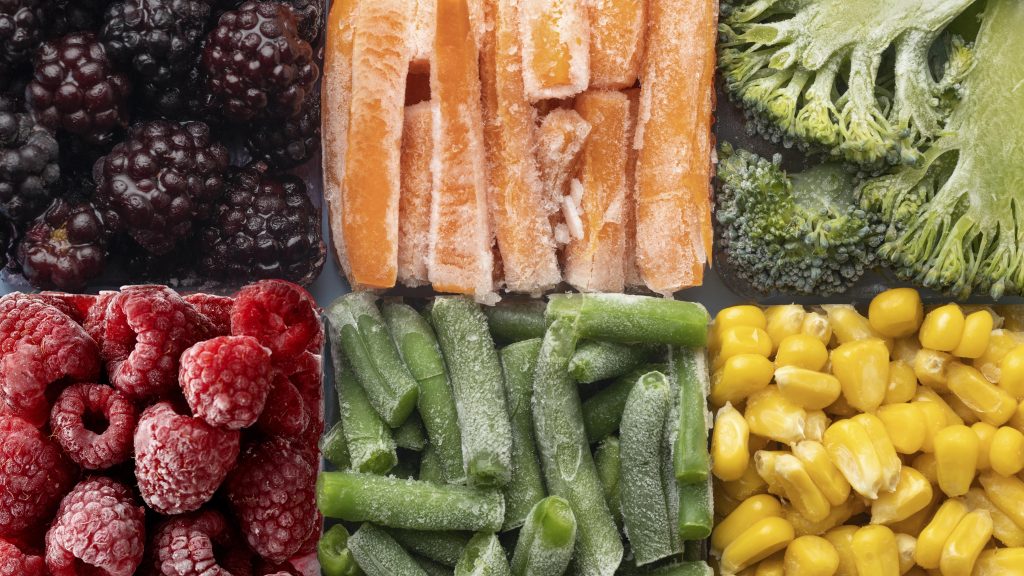Frozen vegetables are a convenient, nutritious, and most dependable way to store vegetables
for extended duration. Frozen vegetables are a great substitute, when we don’t have access
to fresh produce due to various reasons.
Benefits of Frozen Vegetables …
- Nutritional Value: Frozen vegetables are typically frozen shortly after being harvested,
which helps preserve their nutrients. In some cases, frozen veggies are more nutritious
than fresh ones, especially if the fresh vegetables have been stored for a while. - Convenience: They require no peeling, chopping, or prep work—its ready to cook.
- Cost-Effective: Certain frozen vegetables often cost less than fresh, especially when
they are out of season.
Thaw or Not to Thaw?
One of the most common questions we ask is, whether one should thaw frozen vegetables
before cooking. The short answer is no — frozen vegetables can typically be cooked directly
from frozen state. Thawing them first, can make them soggy, as frozen vegetables tend to
release water when thawed.
Best methods for Cooking Frozen Vegetables …
1. Sautéing is a quick and easy way to cook frozen vegetables while preserving their flavour and texture.
Tip: To add flavour, sauté garlic, onion, or herbs in the oil before adding the vegetables.
2. Steaming is a great way to preserve the nutrients in your frozen vegetables.
Tip: To add flavour, steam vegetables in broth or add lemon juice after steaming.
3. Roasting frozen vegetables in the oven gives them a crispy, caramelized texture that
enhances their natural Flavors.
Tips: Place the frozen vegetables in a single layer to allow moisture to evaporate.
4. Boiling is one of the simplest ways to cook frozen vegetables, but not the best for preserving flavour or texture. It’s best for when you’re making soups or stews.
Tips: Avoid overcooking frozen vegetables, to avoid becoming mushy.
Tips for Cooking Frozen Vegetables:
- Season Well: Frozen vegetables can sometimes be bland, so be sure to season them generously. Add fresh herbs, garlic, onion, lemon, and vinegar to elevate their taste.
- Don’t Overcook: Since frozen vegetables are already partially cooked before freezing, overcooking can lead to mushiness. Monitor cooking times to ensure the best texture.
- Add to Dishes: You can add frozen vegetables directly to dishes like casseroles, stir-fries, and pastas. Just adjust the cooking time to account for their frozen state. With the right techniques and seasoning, frozen veggies are just as delicious as their fresh counterparts.


